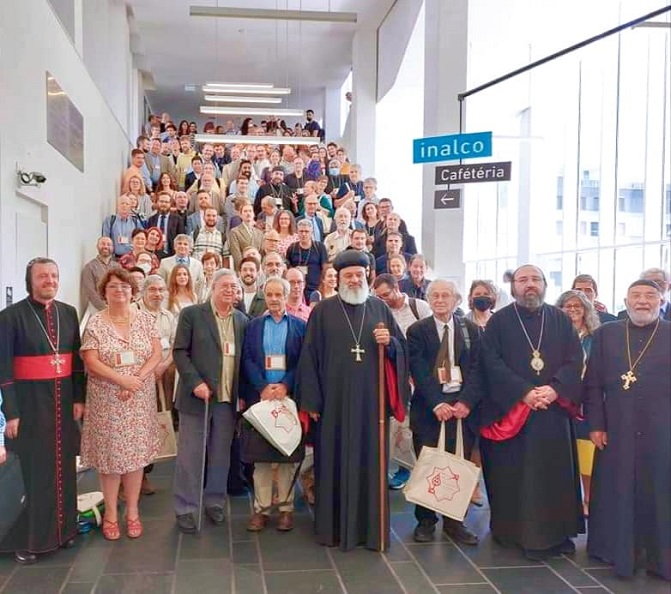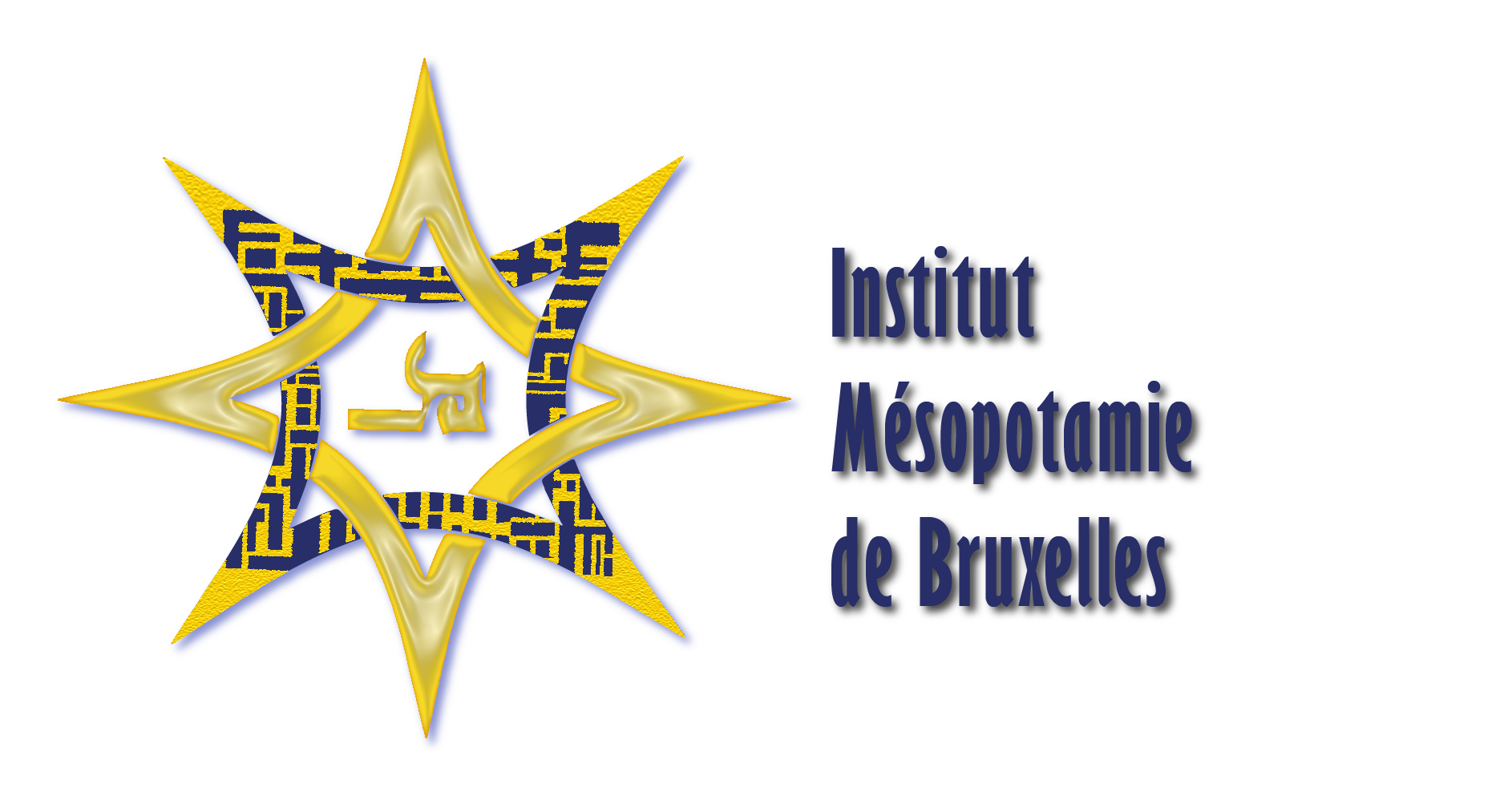Naum Faiq Short Story and Poetry Competition 2023

In memory of Syriac teacher, writer, thinker, and poet Naum Faiq Palakh, the Institut Mésopotamie de Bruxelles is organizing its first Naum Faiq Short Story and Poetry Competition. The Naum Faiq Short Story and Poetry Competition is created to encourage and appreciate artistic expression on Syriac culture, language, history, tradition, and nationhood through various literary forms. It calls on contenders to put on paper in a narrative or poetic form their thoughts, ideas, and ideals on any of the above-mentioned aspects of Syriac nationhood and, in line with Naum Faiq’s thinking, the promotion of unity in diversity.
Naum Faiq (1868–1930) was born in Omid and lived in times of social and political unrest in the waning days of the Ottoman Empire. He spoke and wrote in Syriac, Ottoman Turkish, Arabic, Persian, and later English. As an editor and publisher, he expressed his pioneering patriotic ideas on Syriac culture, education, language, history, tradition, and nationhood in many writings, books, periodicals, and magazines such as Bethnahrin (Mesopotamia), Kawkab Madenho (Star of the East), and Huyodo (Unity). Throughout his whole life, malphono Naum Faiq wrote and published inexhaustible to raise awareness, and bridge and bring down the denominational and religious divisions among the Syriacs, Arameans, Chaldeans, Assyrians, Rūm, Mandeans, and Maronites, who are organized into different churches. Since he considered them all part of the Syriac Tradition , he called for national unity in diversity instead of denominational sectarianism.
The 3-member jury consists of Syriac teachers, historians, and writers. The winners will be announced in a special ceremony on Naum Faiq Memorial Day, in February 2023.
Short stories and poems must be submitted in the Syriac language, either in Syriac or Latin script and in any of the Syruiac dialects.
The minimum total word count is 1,500 and should be no more than 5,000 words.
Submit your short story or poem on any of the aspects of Syriac nationhood latest January 15, 2023.
For more information and your submissions: info@institutmesopotamie.com

Institut Mésopotamie Director Nurgül Çelebi attends Symposium Syriacum in Paris

Our Director of Projects and Programs was present at the Symposium Syriacum held between 4-9 July 2022 in INALCO Paris. The conference, attended by well-known academics such as Prof. Sebastian Brock, Prof. Herman Teule, Prof. Shabo Talay, is the most prestigious conference on Syriacs. Nurgül Çelebi: “Great to meet so many colleagues and field scholars from all over the world. Great experience for me and the Institut. Hope to see and work with many of them soon again.”
Conversation with the head of Seyfo Center, Sabri Atman

We are happy to inform you about our upcoming event with the head of Seyfo Center, Sabri Atman, on July 1. 2022. You are all invited to join us at our office (20:00) at the Rue Bara 152 in Brussels!
Fig Tree Painting Exhibition held under much attention in Brussels

Our Fig Tree painting exhibition themed “The Situation of Women in the SAYFO Genocide” was held on June 12, 2022, and attracted a lot of attention and attendees. We thank Syriac Member of European Parliament Ilan De Basso, mayor of Etterbeek-Brussels, Vincent De Wolf, Syriac Orthodox Archbishop for Belgium and France Mor Gewargis Gawriye, and Institut member Madjida Yacoub for their participation and speeches. We send our endless thanks and love to the painters Ninson Malki, Oraka Kangus, and Pınar Çelebi, who made the exhibition a great success with their beautiful and moving paintings. We also want to send our greetings and love to all our valued guests, everyone who contributed, and thanks to Nail Bethkinne for the beautiful photos.
Institut Mésopotamie online webinar: SAYFO

We are expecting all of you in our webinar on SAYFO Genocide of 1915, this June 14, 2022, at 20:00. Participation is free! You can participate in the event via this link given below. Langugae: Suryoyo (Syriac).
Fig Tree Exhibition: "The situation of women in SAYFO"

We are honored to announce the first painting exhibition we organized as the Institut Mésopotamie de Bruxelles. You are all invited to our painting exhibition called “Fig Tree”, which will be opened on June 12, 2022, at 16.00 with the theme “The Situation of Women in SAYFO”.
For details, you can contact us at:
info@institutmesopotamie.com
Institut Mésopotamie in the media: “From an olive branch, we are ready to establish an olive forest”. Read Director of Projects and Programs Nurgül Çelebi's interview about the upcoming painting exhibition and work of the Institut.

In 1915, the Syriac (Aramean–Assyrian–Chaldean) people, one of the oldest peoples of Beth Nahrin (Mesopotamia) and the first to accept Christianity, were subjected to genocide by forces of the Ottoman Empire. On 12 June 2022, the Institut Mesopotamie de Bruxelles will open a painting exhibition, displaying works by female artists covering the Sayfo Genocide.
The Sayfo, literally “sword”, is the Syriac term for the series of genocides committed by the Ottoman Empire and its Kurdish, Arab, and Circassian allies which saw the deaths of an estimated 1.5 million Armenians, 300,000 Greeks, 300,000 Yezidis, and 300,000 Syriacs (Arameans–Assyrians–Chaldeans). Equal numbers were forced from their homes and displaced. Annually, on 15 June, Syriacs (Arameans–Assyrians–Chaldeans) commemorate the hundreds of thousands of victims of the Sayfo Genocide of 1915.
SyriacPress interviewed Director of Projects and Programs at Institut Mesopotamie de Bruxelles Nurgül Çelebi about the exhibition, the work of the Institut, and her own work.
For the whole interview See SyriacPress
Institut Mésopotamie in the media: “Süryanileri, Pontosları, Rumları ve Ermenileri yeniden kazanmalıyız”. Read Director of Projects and Programs Nurgül Çelebi's interview about the upcoming painting exhibition and work of the Institut. (Turkish)

Brüksel’de Sayfo anısına düzenledikleri resim sergisine dair Gazet Sabro konuşan yazar Nurgül Çelebi, “Bu bir nevi açık bir çağrıdır: Süryanileri, Pontosları, Rumları ve Ermenileri, katliam mağdurlarını yeniden kazanmalıyız” dedi.
Interview with Gazete Sabro about the painting exhibition the Institut Mésopotamie organized in Brussels about SAYFO. Writer Nurgül Çelebi: “It is still a kind of an open wound. We must win back the Syriacs, Pontic Greeks, Rums, and Armenians, the victims of the genocide.”
For the whole interview See Gazete Sabro










